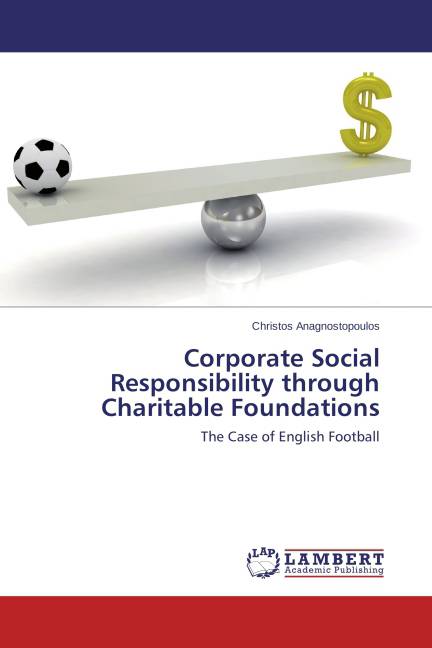
- Afhalen na 1 uur in een winkel met voorraad
- Gratis thuislevering in België vanaf € 30
- Ruim aanbod met 7 miljoen producten
- Afhalen na 1 uur in een winkel met voorraad
- Gratis thuislevering in België vanaf € 30
- Ruim aanbod met 7 miljoen producten
Zoeken
Corporate Social Responsibility through Charitable Foundations
The Case of English Football
Christos Anagnostopoulos
Paperback | Engels
€ 75,45
+ 150 punten
Omschrijving
Professional teams are now modifying their organisational structure by establishing foundations tasked with delivering their corporate social responsibility (CSR) content. These structural changes inevitably bring in new organisational actors who influence the actual implementation of CSR in this business context. Organisational complexity is therefore increasing regarding CSR, as is the need to capture its elements at both cross-organisational and individual levels. This is especially important given that, unlike mainstream (corporate) foundations that deal directly with a parent company, professional sport leagues often mandate the implementation of CSR through central funding mechanisms. This in turn emphasises the intricacy of the process and the dynamics amongst organisational actors at various levels. This book attempted to address this complexity by examining the managerial decision-making process in the organisational context of charitable foundations established by English professional football clubs.
Specificaties
Betrokkenen
- Auteur(s):
- Uitgeverij:
Inhoud
- Aantal bladzijden:
- 300
- Taal:
- Engels
Eigenschappen
- Productcode (EAN):
- 9783659621444
- Verschijningsdatum:
- 22/10/2014
- Uitvoering:
- Paperback
- Afmetingen:
- 150 mm x 220 mm
- Gewicht:
- 440 g

Alleen bij Standaard Boekhandel
+ 150 punten op je klantenkaart van Standaard Boekhandel
Beoordelingen
We publiceren alleen reviews die voldoen aan de voorwaarden voor reviews. Bekijk onze voorwaarden voor reviews.








